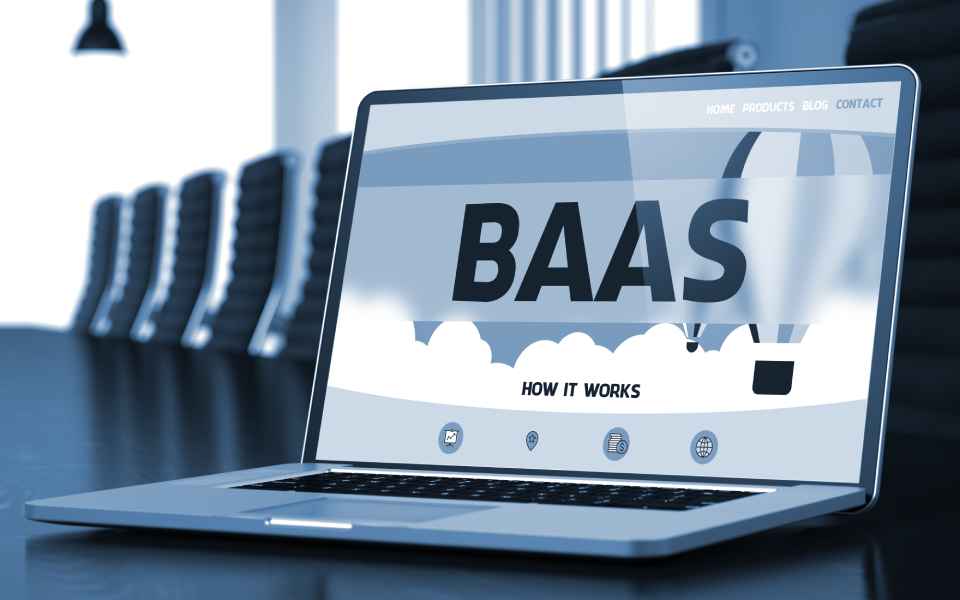Can BaaS help build back customers’ trust in financial services?

- Sam Shaw, in partnership with digital product business Apadmi, External Author at Chetwood Financial
- 13.05.2022 04:15 pm #banking #BaaS
Financial services – and banks in particular – have faced trust issues for years, driven in part by painful service experiences, often disproportionate fees, and an unnecessary propensity for jargon. Let’s not forget the scandals that seem to rear their ugly heads every few years or so - clearly there are plenty of reasons for customer dissatisfaction.
Since the 2007/08 Great Financial Crisis, huge efforts have been underway to turn things around for financial services and banks. This is seen in tighter regulations, designed to shake out the bad apples and improve accountability standards. In tandem, the digital revolution has been on full-throttle, accelerating further in financial services since the pandemic hit. People turned away from cash, adopted digital banking models, and were forced to review their spending habits.
The time is ripe for more creative, customer-centric and technology-based solutions to answer the call; an antithesis to financial services’ status quo. It’s time to accept and catch-up with the on-demand nature of services and an intolerance for friction we have come to expect in other aspects of life.
Picking the right partners
One of the hottest topics right now is the opportunity around Banking-as-a-Service (BaaS), a bundled, white-labelled offering that typically sees collaboration between a consumer-facing brand and a fintech, which brings it all together.
Nurturing a relationship with clients
If customers have formed an affinity relationship with a particular brand, they can feel part of a community. The idea of embedding a financial product, such as a loan or a credit card, that resonates with that community – in their natural habitat, if you like – makes both practical, emotional and commercial sense.
According to Oliver Wyman, the cost of acquiring a new customer for a financial services institution is between $100-$200, while a BaaS tech stack can reduce this to as little as $5.
The non-financial brands bring the connection and the banking partner brings the regulation and compliance.
One firm’s BaaS proposition goes one step further – not only performing two of the three functions but also bringing together regulatory oversight, a more ethical customer-centric journey and an appetite to work with partners who share their values.
Meeting customers changing needs
Founded in 2016, Chetwood Financial creates products for specific groups of customers that have been generally underserved by traditional financial services providers. They do this by delivering agile, low-cost technology solutions that are easily adaptable to meet its customers’ changing needs.
The digital bank’s Head of Partnerships, Sophia Sanders, explains its ethos.
“Many of the Chetwood team have vast experience working for large banks and financial institutions and we understand that the technology these companies use is legacy, which means to make changes is both very difficult and very expensive. As such, you end up with essentially ‘watered-down’ propositions that meet the needs of the masses, because that’s what’s required to make a return on investment.”
Fully flexible
While many BaaS models will be set up to ‘drop in’ some tech into a single (or a few specific) points in the value chain, Chetwood is set up to be able to offer a menu of end-to-end options.
“We’ve become almost like a product consultancy, with partners looking to us to develop innovative customer-centric products for them in the same way we have for ourselves,” she explains.
“We can offer the technology platform, the onboarding, credit decisioning, regulatory oversight, run the balance sheet, and everything from proposition development and design, right through to operational activities, such as customer service management.”
Because Chetwood has already built these platforms for itself in order to deliver a range of credit card, personal unsecured loan and savings products (with more in the works), she adds that the technology allows the easy creation of products and brands for other companies as well.
“That was always the intention,” she says.
“We can do it all end-to-end, or we can do very particular things. Most partners want the full service though, because that’s quite unique in the market. They don’t have to find several other technology suppliers and piece it all together, because we've already done it for them.”
How does she deal with concerns over cannibalising a partner’s business, or worries Chetwood might ‘nick their customers’?
“Our BaaS customers know that we’re an ethical business. It’s seen as reassuring that we do it for ourselves, as opposed to a threat. We have everything that’s necessary to make sure that partner information is kept strictly confidential.”
Servicing new communities
Sophia believes not being precious about customer ownership is one of Chetwood’s key differentiators versus many traditional banks who “get you in on a current account which is generally loss-making from a commercial perspective, then want to cross-sell an array of products to drive profit. We don't do that. We create specific products for specific groups of people that are profitable in their own right.”
Through distribution arrangements with the likes of Experian, ClearScore and MoneySuperMarket, Chetwood is able to create bespoke propositions for partner brands – perhaps online communities, supermarkets or retailers, as well as other financial services organisations – and offer them a financial product for their own customer base, which they can also distribute via the aggregator’s API.
“We're not trying to take a business’s customers from them, why would we? Instead we’re helping them add to their own propositions, using their brand.”
How it works
For example, if Chetwood creates a loan for Supermarket X, that supermarket can reach their customers through their own website, app, and email marketing channels but would also have the ability to tap into Chetwood’s aggregator sites, using its existing integrations, thus extending Supermarket X’s reach to a wider audience.
Can using the service improve trust in the sector? That seems to be where actions will speak louder than words. “Everyone talks about putting the customer first,” she asserts.
With its entire product range designed to be fair, transparent, stop customers being financially penalised and help them become better off, Chetwood is keen to work with partners who care about customers too.
Improving credit and flexibility
For instance, Chetwood’s LiveLend product automatically reduces the customer’s APR as they improve their credit score. It rewards customers for improving their financial health. “It's the only loan in the world to work like this”, she says “and we want to work with other brands to create bespoke products that genuinely make their customers better off too”.
“If you’re proactively helping your customers, it creates trust and they will be more likely to continue shopping with you.”
Fundamentally, Chetwood is seeking BaaS partners who, in trying to improve trust levels, improve their customers’ experiences and in turn drive loyalty. This creates a positive loop of financial organisations that nurture trust and client relationships over hogging as much profit as possible.
“We want partners who genuinely want to help make their customers financially better off, through agile technology and products, while building more sustainable financial incomes.”























